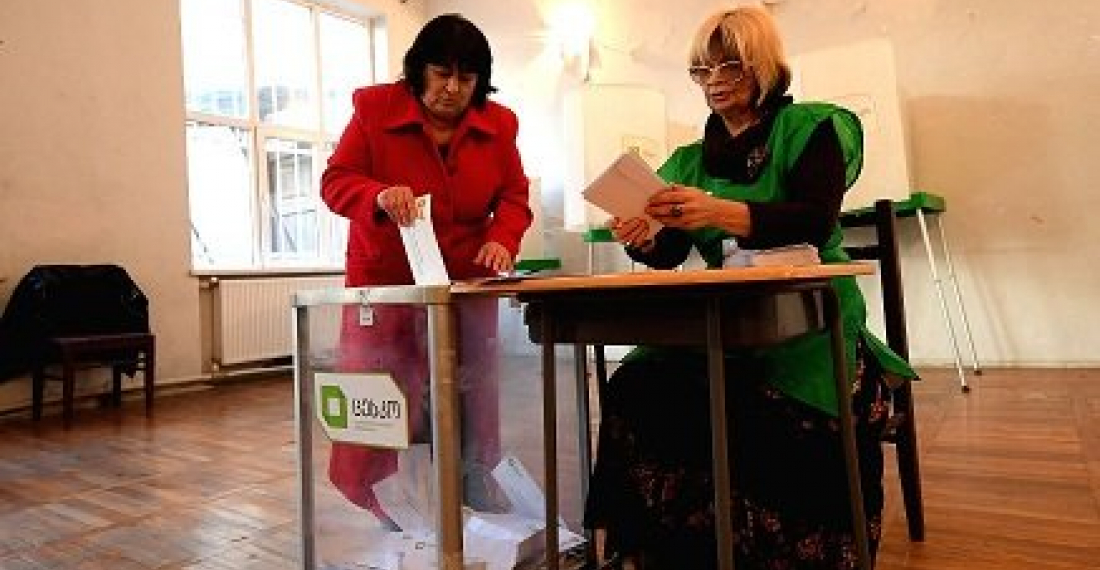Parliamentary elections are due to be held in Azerbaijan and Georgia in 2020. Despite the very different context and background both will provide a catalyst for wider ongoing political process and will contribute to defining the future of the South Caucasus, writes commonspace.eu political editor in this commentary.
The political landscape in Azerbaijan and Georgia is different, but both share a common recent history, a challenge to survive in a difficult neighbourhood and a painful process of transition from Soviet totalitarianism which is far from complete. Next year's parliamentary elections in the two countries will be crucial in determining the region's future.
In Georgia, a clean election is a must
Georgians do politics with gusto. The debate is always inevitably emotional, colourful and noisy. Issues are often blown out of proportion. Politicians appear to have a sense of priority as to what matters most that often leaves outsiders perplexed. Bitter experience has also made Georgians politically savvy. There are red lines that never get crossed. The experience of 1989-93, when the country was in civil war and fragmenting, still looms large in the nation's collective memory. At key moments over the last two decades the country appeared on the brink, but at the last moment common sense prevailed.
There are mixed views as to how serious the current political crisis in Georgia is. The ruling Georgian Dream of Bidzina Ivanishvili has developed a notoriety of shooting itself in the foot. The opposition emboldened by a strong showing in the 2018 presidential elections has used every government misstep to pile up the pressure. Everybody knows the real showdown will come at the next parliamentary elections scheduled for October 2020. Speculation persists that they may be brought forward and held in the spring.
The latest crisis is ostensibly on the election system. Should Georgia have mixed majoritarian-proportional parliamentary system, or only proportional as the opposition demands, and the government had appeared to agree to earlier? Or maybe a fully majoritarian system? The German model or the British model? To hear Georgians speak these days you would be forgiven to think that the country has turned into a nation of constitutional experts.
Frankly it does not matter, at least not very much. Georgia's current mixed system worked well enough in the past. It did not stop the historic peaceful transfer of power from the Saakashvili government to Ivanishvili's in 2012. The majoritarian system extends the patronage system to the grass roots, and this is supposed to benefit the incumbent government, but the extent to which it does this is very debatable.
The discussion about the electoral system is shifting from the streets to the conference room. The international community, spearheaded by the EU and the US, managed to bring the opposition parties to the negotiating table to discuss with the government a way forward. Various proposals are being discussed. But whether they will agree or not is largely irrelevant.
The litmus test for Georgian politics will be the election itself, under whichever system it is held. A clean, well-organised election where candidates can compete freely - on a by and large level playing field, and where the votes are properly counted, and the results respected - is what is important, and everyone needs to focus on this. This certainly is where the focus of the international community must be going forward. It is very possible that the current talks between government and opposition will also drift in this direction, although the presence of many parties makes the conversation awkward.
If the elections are truly free and fair, the Georgian political elite will have, willy-nilly, to change tactics and up its game. Political parties need to have more clearly identifiable policies. Politics must move away from the personality clash between Saakashvili and Ivanishvili.
Azerbaijan early parliamentary elections on 9 February 2020 has the potential to be one of the most important in the country's political history
Early Parliamentary elections will be held in Azerbaijan on 8 February 2020 at a time when the country is engrossed in a top-down reform process which has seen a massive generational shift in personnel. President Ilham Aliyev has made the reform programme the cornerstone of his third term in office. New appointments have been made at the highest level of the country's governance system including the cabinet of Ministers, the Presidential Administration and local Executive powers. These have all been top-down changes. The Milli Meclis (parliament) is another matter. Will the process of reform also be bottom-up?
Elections in Azerbaijan in the last decade have been tightly managed affairs that have been criticised by the international community. The elections will provide an opportunity for the government to show that it is serious about reforms, and that they are not merely musical chairs amongst the country's elite. The way the elections are conducted will therefore be highly significant, and carefully watched.
The elections however provide another opportunity. Most of the country's opposition has been locked out in the wilderness for the last decade. It now appears that at least part - spearheaded by Ilgar Mammedov's REAL Movement, may be willing to come in from the cold, and perhaps more significantly that the government is welcoming this step.
This election may well turn out to be one of the most important in Azerbaijan's modern political history. There is, in theory at least, the potential for that.
source: This commentary was prepared by the political editor of commonspace.eu. An earlier version of this commentary was published on the electronic newsletter Caucasus Concise on 12 December 2019
photo: A voter cast her ballot at elections in Georgia in 2018 (archive picture)







